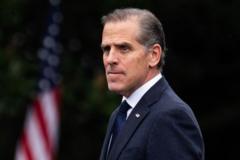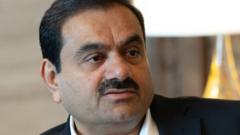President Joe Biden has unexpectedly pardoned his son Hunter Biden, reversing his previous stance against doing so. The announcement came on the Sunday evening after Thanksgiving, a time when public attention was minimal.
In his statement, Biden defended his son, emphasizing Hunter’s five-and-a-half-year sobriety and claiming that the prosecution was selective. He suggested that attempts to “break Hunter” were also attempts to break him personally, declaring “Enough is enough.”
The pardon bears striking similarities to former President Donald Trump’s approach to presidential pardons. During his exit from the White House in 2021, Trump issued pardons for close associates involved in criminal investigations, often bypassing standard White House procedures. Despite criticism, Trump faced minimal political repercussions for these actions.
Biden’s decision is likely to draw criticism from both political sides. Democratic Governor Jared Polis of Colorado has already expressed disappointment, suggesting the pardon would “tarnish” Biden’s reputation. However, with Biden’s political career winding down, he may face limited consequences for this decision.
The incident highlights a significant shift in how presidential pardon powers are being utilized. The traditional guardrails and processes surrounding presidential pardons appear to have been fundamentally altered in recent years, creating a new precedent that seems increasingly partisan and personally motivated.
The Trump campaign was quick to respond, promising to “fix” the justice system and restore due process if Trump wins a second term. This response hints at the potential for continued use of presidential pardon powers as a political tool.
Looking ahead, there are expectations that Trump might similarly use his pardoning power to assist associates prosecuted during the Biden administration and potentially pardon supporters involved in the January 6, 2021 Capitol riot.
This development raises broader questions about the evolving nature of presidential powers and the potential erosion of traditional checks and balances. The willingness of recent presidents to use pardons in increasingly personal and politically charged ways suggests a significant transformation in how this constitutional power is perceived and exercised.
The Hunter Biden pardon represents more than just a personal decision for the president; it symbolizes a broader trend of expanding executive power and the increasing politicization of legal processes. As the political landscape continues to shift, the boundaries of presidential pardons seem to be becoming more fluid and less constrained by previous norms and expectations.
With the upcoming presidential transition and the potential return of Trump to office, the conversation around presidential pardons is likely to remain a contentious and closely watched issue in American political discourse.




